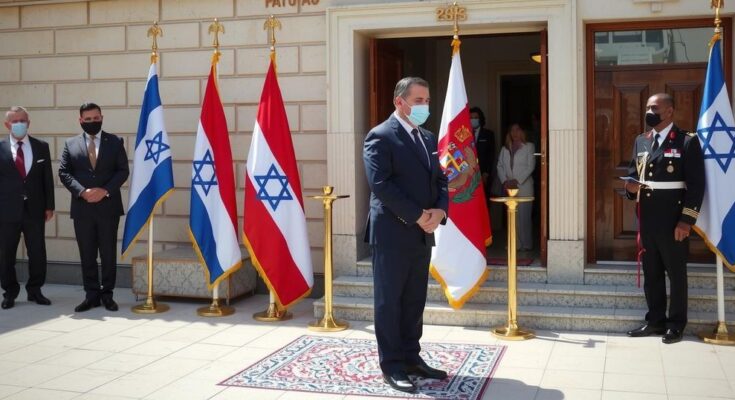Paraguay has reopened its embassy in Jerusalem, recognizing it as Israel’s capital, joining countries like the U.S. and Guatemala. This decision comes after a previous reversal in 2018 and positions Paraguay as the first nation to act post the recent conflicts erupted by Hamas. Diplomatic negotiations are ongoing in the region, influenced by the changes in balance of power.
On Thursday, Paraguay officially reopened its embassy in Jerusalem, reaffirming its recognition of the city as Israel’s capital. This decision follows a prior relocation in 2018 under President Horacio Cartes, which was quickly reversed by the subsequent administration. The current President, Santiago Peña, now positions Paraguay as the first country to take such action since the outbreak of the recent conflict following the Hamas-led attack on October 7. With this move, Paraguay joins the ranks of other nations, including the United States, Honduras, Guatemala, Kosovo, and Papua New Guinea, that have established embassies in Jerusalem.
The status of Jerusalem remains a contentious issue in Israeli-Palestinian relations, with many countries historically refraining from recognizing it as Israel’s capital due to the complexities of the ongoing conflict. Paraguay’s reopening of its embassy signifies a notable shift in diplomatic relations and reflects a broader trend among select nations to strengthen ties with Israel amidst recent escalations in regional tensions. The geopolitical landscape has evolved significantly since the ceasefire in Lebanon, which has influenced negotiations regarding the situation in Gaza.
In conclusion, Paraguay’s decision to reopen its embassy in Jerusalem marks a significant step in its foreign policy and provides insight into the shifting alliances in the region. The ongoing diplomatic efforts, particularly those led by the United States, are pivotal in shaping the outcomes of current conflicts. The reopening is a significant reaffirmation of support for Israel, further cementing the role of select nations in the complex landscape of Middle Eastern diplomacy.
Original Source: www.reviewjournal.com




